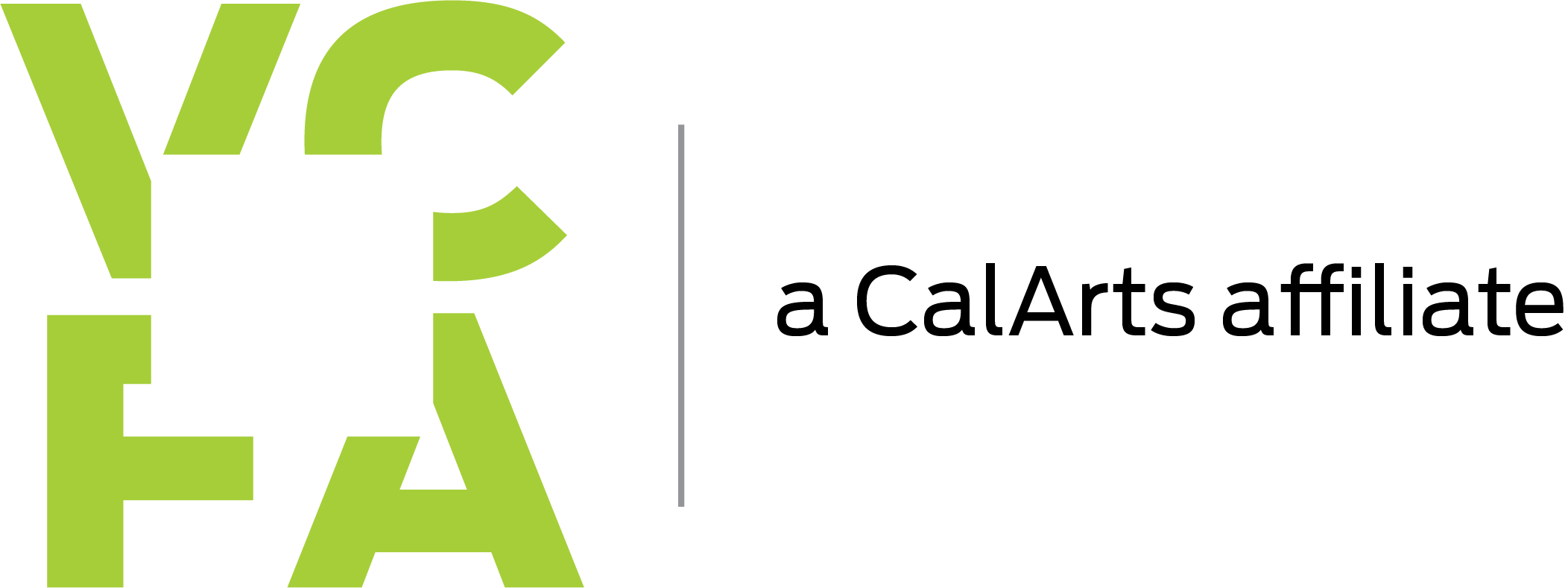Jane Houng & Heather Demetrios, 2014 MFA in WCYA
Years after graduating from the WCYA program in 2014, Jane Houng and Heather Demetrios are still finding ways to collaborate and use their collective voices for change. Both working in the kidlit space, Houng is known for projects such as Bloodswell and Twinkle Toes, and Demetrios for titles such as Code Name Badass, Little Universes, and Bad Romance. In the summer of 2022, Houng and Demetrios reached out to VCFA about their upcoming November workshop, The Rebecca Dykes Writers Workshop.
Hosted in honor of Houng’s daughter Rebecca Dykes, who lost her life in 2017 as a result of sexual violence, the workshop is a safe space for kidlit writers to tell their stories and to write about violence against women and girls, with the intent of connecting with and empowering young readers. You can read excerpts of our conversation, and learn more about how to join and support the workshop, below.
TW: Violence against women and girls, death, sexual assault.
ON THE LEGACY OF HOUNG’S DAUGHTER, REBECCA DYKES
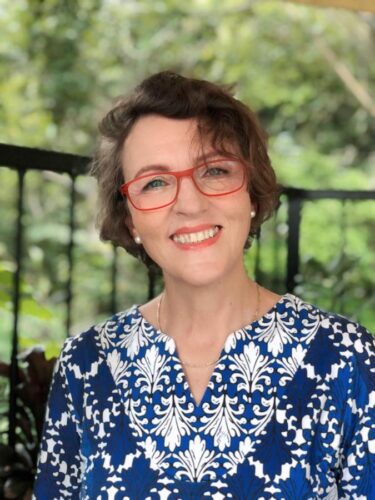 Houng: Becky was working on a variety of refugee projects in Lebanon for the British government when she was raped and killed by an Uber taxi driver in 2017. After losing her, ideas about how to ensure her death wasn’t in vain flooded my consciousness. Gradually, I whittled them down to three.
Houng: Becky was working on a variety of refugee projects in Lebanon for the British government when she was raped and killed by an Uber taxi driver in 2017. After losing her, ideas about how to ensure her death wasn’t in vain flooded my consciousness. Gradually, I whittled them down to three.
Firstly, I set up Becky’s Bathhouse to keep her humanitarian spirit alive. To date, this wellness center on Lesvos island in Greece has served over 14,000 refugee women and children who currently reside in the worst camp in Europe.
Secondly, 3,000 Becky’s Buttons, a panic alarm which could have saved her life, will be distributed for free at Becky’s Bathhouse and around Greece this year. Even if this device saves the life of only one vulnerable single woman, I will feel my endeavors worthwhile. Of course, I hope this project goes global. It’s scandalous that, in the 21st century, women are still under threat from rape and attack.
Lastly (for now!), Rebecca Dykes Writers is for the writer’s world, a space I personally can probably best contribute to. The pen is mightier than the sword and all that.
ON HOW THE REBECCA DYKES WRITERS WORKSHOP CAME TO BE
Demetrios: When I got news of Becky’s death, I was floored. This was probably early 2018 when I found out, as Becky died close to Christmas 2017. Jane is a dear friend of mine, and part of my cohort at VCFA.
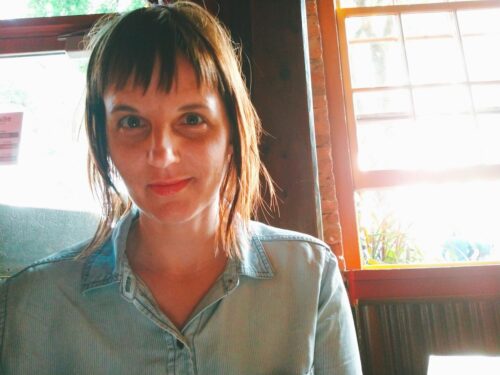 Fast-forward to early 2020, when I began volunteering for Jane’s organization, Becky’s Bathhouse, a wellness center serving refugee women in Lesvos, Greece—a population Becky had been passionate about during her life. One thing led to another and Jane and I decided that we needed to find a way to empower writers to tell more stories about violence against women and girls, especially femicide. There are so few books on the topic, and even the ones that are out there struggle to engage with the topic in a direct way. We knew the challenges: it’s a painful topic, and many parents are likely worried about traumatizing their children. But it’s these very children who, statistically, will be impacted by this violence in some way. So what to do?
Fast-forward to early 2020, when I began volunteering for Jane’s organization, Becky’s Bathhouse, a wellness center serving refugee women in Lesvos, Greece—a population Becky had been passionate about during her life. One thing led to another and Jane and I decided that we needed to find a way to empower writers to tell more stories about violence against women and girls, especially femicide. There are so few books on the topic, and even the ones that are out there struggle to engage with the topic in a direct way. We knew the challenges: it’s a painful topic, and many parents are likely worried about traumatizing their children. But it’s these very children who, statistically, will be impacted by this violence in some way. So what to do?
A writing workshop seemed like the best option. We could create a safe container for writers of all genders to come and learn about ways to tell these stories for young readers in a way that honors the seriousness of the topic, but through strong craft and good storytelling, and that does not traumatize a young reader.
ON WHAT THE WORKSHOP WILL EXPLORE
Demetrios: We’ll be doing a combination of lectures, workshopping, and private writing time—in addition to optional self-care support. We want writers to leave with both the story and wellness tools to support their writing. Writers will also have access to trauma-informed mindfulness sessions and 1:1 sessions with a mental health professional, as needed.
Our faculty is very diverse—this is important for so many reasons, but foremost because violence against women and girls disproportionately affects BIPOC, queer, and trans folks. There are so many layers to this issue: racial, economic, geographic, and so on. We’re scratching the surface, but hoping that our writers walk away with the tools and resources they need to go much deeper as they continue to develop their work.
The faculty will be covering the topic through talks that build craft and story skills, offer a strong foundation in what is—and isn’t—out there for young people on this topic, and look at how our work can add to the conversation. I’m particularly interested in considering how we avoid clichés, didacticism, and the mechanics of writing a traumatic moment on the page.
ON THE IMPORTANCE OF WRITING ABOUT GENDER-BASED VIOLENCE IN KIDLIT
Demetrios: I don’t know a single woman who has not been impacted by gender-based violence. Whether they’re afraid to take a walk at night or struggling to overcome the trauma of rape or anything in between, every woman has a story to tell. The ripple effect of this violence and the way it shapes women, girls, families, and society at large is almost impossible to catalog, it is so far-reaching.
I believe in the power of kidlit to increase a human being’s capacity for empathy and compassion. I believe it’s a spiritual technology that connects a reader to their global family. Through story, we get to see the world from someone else’s perspective. Our hearts and minds expand, and it becomes harder to work in a binary of “us” and “them.” Kids and teens have enormous capacity to feel for others, and if they get opportunities to explore this difficult topic within the safe container of a story, there’s a good chance that they will receive medicine they need if they’re hurting and will be able to be part of the solution, and not the problem, as they age.
Our readers are our best hope of breaking this cycle of violence. We’ve seen how younger generations are willing to see the world in a whole new way, questioning everything from the concept of gender itself to the institutions that run our society. These young readers will grow up to become policy-makers or parents or adults. They will grow up to be female-bodied in a world that is not safe for women. They will grow up to be men who can choose to fight violence against women or uphold it as a status quo. They will become nonbinary folks who can throw a monkey wrench into the politics of gender. They will be writers and artists and teachers and scientists and activists and doctors and therapists and factory workers and CEO’s and any number of things. This is our chance to plant a seed that will bear fruit. Writing for young people is a long game. We’re contributing to the future of our society and planet by expanding the hearts and minds of the next generations of adult inhabitants.
ON HOW TO JOIN AND SUPPORT THE WORKSHOP
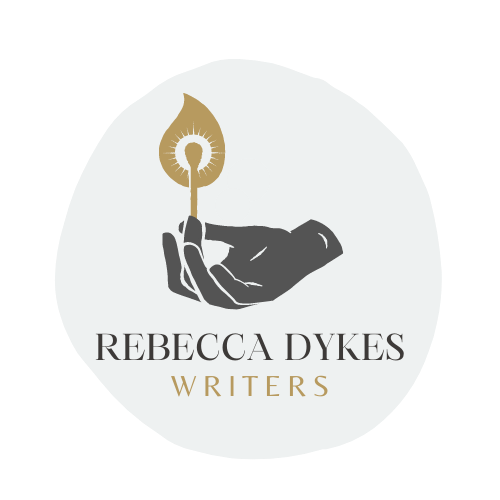 Demetrios: You can find out more about Jane, Becky, and our work at our website rebeccadykeswriters.com. Upcoming retreat place and dates are The Highlights Foundation from November 3–7, 2022.
Demetrios: You can find out more about Jane, Becky, and our work at our website rebeccadykeswriters.com. Upcoming retreat place and dates are The Highlights Foundation from November 3–7, 2022.
You can contact us at rebeccadykeswriters.com/connect if you have an interest in helping us put on future workshops in the US or globally. We’re looking for more partners who have a built-in audience of writers who would be interested in doing this work.
We’re also considering doing online presentations, and we would love to partner with organizations that would want to bring us in to host mini-workshops with communities around the world.
Houng: Please sign up for the retreat, contact Heather or me, and share our links to your network! I hope Rebecca Dykes Memorial Retreats will become an annual event at different places around the world. Plans for the 2023 retreat in Greece gather apace.
Read more stories about our Alumnx through our Alumnx Stories series. Interested in an MFA in Writing for Children & Young Adults? Visit our program page for more information on our VCFA graduate degrees.
